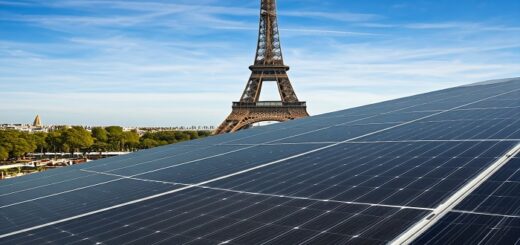How many households in South Africa have solar panels?
Solar energy is becoming increasingly popular in South Africa. South Africa has plenty of sunshine, making it a perfect place to harness this clean and renewable energy source. But how many homes have made the switch? Households in South Africa have solar panels.
South Africa’s 257 municipalities, 21 municipalities across 7 provinces supplied solar home systems to 149 919 households (Figure 1). This is up from 113 197 households in 2017.
There are two main ways to look at solar panel adoption in South Africa: grid-connected systems and off-grid systems.
Grid-connected systems are linked to the national power grid. This means that homes with these systems can use the sun’s energy to power their appliances and lights, and they can also sell any excess electricity back to the grid.
Off-grid systems are not connected to the national grid. These systems are typically used in remote areas where there is no access to grid electricity.

Here’s a breakdown of solar panel usage in South Africa for both types of systems:
Grid-Connected Systems
Accurately pinpointing the number of households with grid-connected solar panels is challenging.
Rapid Growth: The solar power industry in South Africa is growing rapidly. In 2022, there was a significant surge in solar panel imports, with enough panels to generate over 500 megawatts of power added in just the first half of the year. This suggests a substantial increase in households going solar.
Estimates: Experts estimate that less than 4% of South African homes currently have solar panels. However, this number is rising fast.
Off-Grid Systems
The South African government has made efforts to bring solar energy to low-income households through programs that subsidize the installation of solar home systems.
Government Initiatives: Statistics South Africa reports that over 149,919 households have benefited from government solar home system programs.
Impact: These programs are making a positive difference in rural areas, providing much-needed electricity for lighting, phone charging, and other basic needs.
Factors Driving Solar Power Adoption
Several factors are contributing to the rise of solar energy in South Africa:
Load Shedding: South Africa experiences frequent power outages, known as load shedding. Solar panels can help homes become more energy independent and reduce the impact of load shedding.
Rising Electricity Costs: The cost of traditional electricity in South Africa has been rising steadily. Solar power can provide a hedge against these rising costs and long-term electricity savings.
Government Incentives: The South African government offers various incentives to encourage solar power adoption, including tax breaks and rebates.
Environmental Awareness: South Africans are becoming increasingly environmentally conscious, and solar power is a clean and renewable energy source.
Read More: Solar Panels System for Home and Industry in South Africa
Challenges and Opportunities
Despite the encouraging growth, there are still some challenges to overcome for solar energy to become even more widespread in South Africa:
High Upfront Costs: The initial cost of installing a solar panel system can be high, although these costs are coming down. Financing options are becoming more available to help households overcome this hurdle.
Limited Access to Financing: Access to financing for solar panel systems can be difficult for some South Africans, particularly in low-income communities.
Policy Uncertainty: Changes in government policy can create uncertainty for the solar industry. Long-term policy stability is needed to encourage continued investment.
Looking Ahead
The future of solar power in South Africa is bright. The increasing popularity of solar panels, coupled with government support and falling costs, suggests that solar will play a much larger role in South Africa’s energy mix in the years to come.
Here are some additional points to consider:
Battery Storage: As battery storage technology becomes more affordable and efficient, it will make solar power even more attractive for homes, allowing them to store excess solar energy for use at night or during power outages.
Technological Advancements: Advancements in solar panel technology are constantly improving efficiency and reducing costs. These advancements will make solar power even more accessible to South African households.
Job Creation: The growth of the solar industry is creating new jobs in South Africa. This can help boost the economy and create new opportunities for South Africans.
South Africa has the potential to become a leader in solar energy. By overcoming the challenges and capitalizing on the opportunities, solar power can play a significant role in providing clean, reliable, and affordable energy for South African homes and businesses.

















